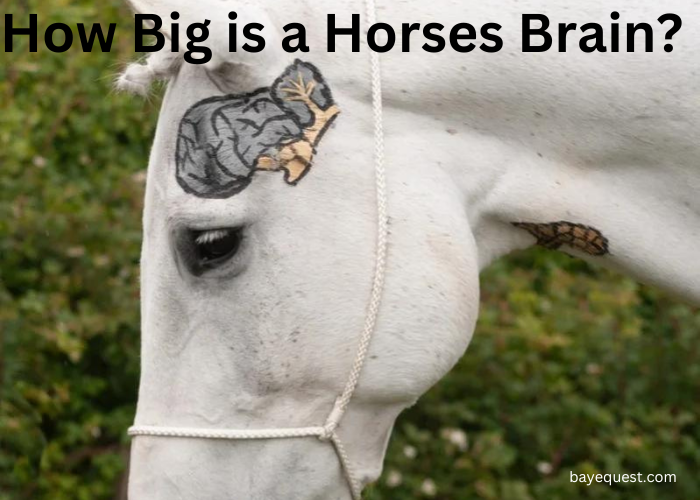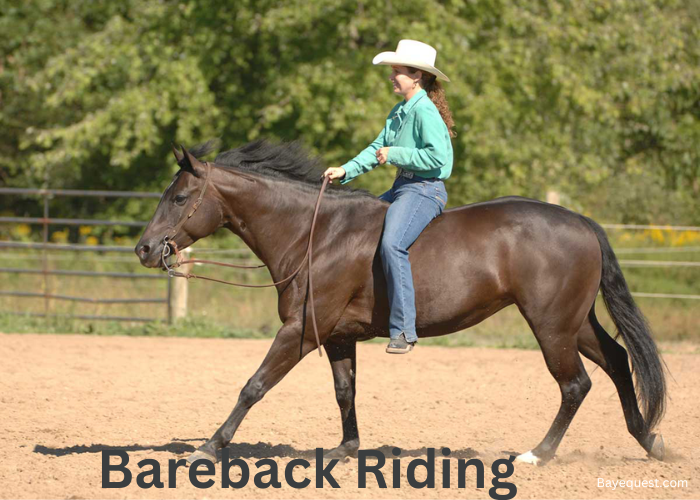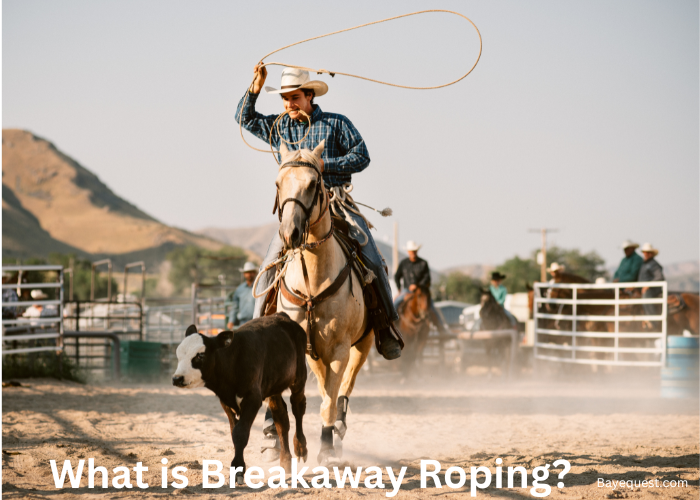How big is a horse’s brain? Well, it’s about the size of a grapefruit. Yep, that’s right—a mighty animal powered by a brain not much bigger than your breakfast fruit.
But don’t let its size fool you. A horse’s brain is packed with enough smarts to navigate complex environments, build strong social bonds, and even outsmart its rider sometimes.
So, next time you’re staring at a horse, remember that it might just be planning its next clever move. Let’s dive into what makes this brain so unique.
How Big is a Horses Brain? Key Takeaway
A horse’s brain weighs about 1.5 to 2 pounds and is roughly the size of a grapefruit. Despite its small size compared to their large body, it’s perfectly designed for their needs. Horses use their brain for memory, learning, and coordinating movement.
Horse’s Brain Size
A horse’s brain weighs about 1.5 to 2 pounds, which might sound small compared to its massive body, but it does the job just fine.
It’s roughly the size of a grapefruit or a small melon, neatly packed inside their skull. What’s fascinating is how it compares to other animals.
A horse’s brain is smaller than a human’s, yet much larger than that of a dog. Despite its size, the horse’s brain is perfectly adapted to their needs.
Horse Brain Anatomy
The horse’s brain is split into three main parts.
First, we have the cerebrum. This is the largest part of the brain, responsible for decision-making, learning, and problem-solving. It’s where your horse figures out what to do when faced with new things.
Next is the cerebellum. This part is all about movement and balance. It keeps the horse steady on its feet, coordinating muscle movements so they can gallop, trot, or jump with precision.
Finally, there’s the brainstem. This controls all the automatic things—like breathing and heart rate—keeping the horse alive without needing to think about it.
Each part of the brain works together to help the horse move, think, and react in its world.
Functions of a Horse’s Brain
The horse’s brain has several key functions:
Movement and coordination. The cerebellum controls balance and muscle coordination, allowing horses to move and respond.
Memory. Horses have excellent long-term memory, enabling them to remember people, places, and experiences.
Survival instincts. The brainstem regulates functions like breathing and heart rate while also driving survival behaviors like fleeing from danger.
Learning and problem-solving. The cerebrum helps horses learn, make decisions, and solve problems.
Sensory processing. The brain processes information from its strong senses—especially sight and hearing.
Emotional recognition. Horses can detect human emotions and respond to facial expressions.
Are Horses Intelligent?
Yes, horses are intelligent, but their smarts are different from what we might expect. They have strong memories and can remember people, places, and routines for years.
Horses also learn quickly. They pick up on cues from their environment and handlers, making them easy to train when the approach is right.
Their intelligence shines through in social situations too. They can read emotions and form bonds with other horses and humans.
While they might not solve puzzles like a dog, horses excel in learning through repetition and understanding non-verbal communication.
Interesting Facts About the Equine Brain
1. The horse’s brain weighs around 1.5 to 2 pounds, small compared to its large body but perfectly suited for its needs.
2. Horses have remarkable long-term memory, remembering people, places, and experiences for years.
3. The cerebellum in a horse’s brain plays a key role in coordinating movements and ensuring balance.
4. Horses rely heavily on their strong sense of sight, with almost 360-degree vision.
5. Their ears can move independently to catch sounds from different directions.
6. Horses are sensitive to human emotions, picking up on facial expressions and body language.
7. Despite the brain’s small size, it helps horses learn new tasks quickly when trained properly.
8. The horse’s brain is highly instinct-driven, guiding their survival responses and behaviors.
9. Horses process sensory information rapidly, which helps them react quickly to potential dangers.
10. Horses can form deep social bonds, both with other horses and with humans.
11. The brainstem controls automatic functions like breathing, keeping the horse alive without conscious thought.
12. The cerebrum in a horse’s brain is responsible for learning, problem-solving, and decision-making.
Horse Brain Vs Human Brain
When comparing the horse brain to the human brain, one key difference is size. A horse’s brain weighs about 1.5 to 2 pounds, while the human brain is larger, around 3 pounds.
Despite its smaller size, the horse’s brain is specialized for survival in its environment. It focuses more on sensory processing, movement, and instinctive behavior.
Humans, on the other hand, have a more developed cerebrum, which is responsible for complex thinking, problem-solving, and creativity.
Horses excel in memory and emotional awareness but rely heavily on instinct, whereas humans can make conscious decisions and process abstract concepts.
Both brains serve their species perfectly, but in very different ways.
Horse Vs Donkey Intelligence
Horses and donkeys are both intelligent, but their strengths differ. Horses are highly social and emotionally aware.
They thrive in herds and understand body language, which helps them bond with other horses and humans.
They have excellent memories and learn quickly through repetition. Horses are also sensitive to human emotions and can mirror feelings like fear or calmness.
Donkeys, on the other hand, are independent thinkers. They are cautious and analyze situations before acting, which is often mistaken for stubbornness.
Donkeys are excellent problem-solvers and can figure out the safest path or solution in tough situations.
While donkeys rely less on social dynamics, they have great memories and make thoughtful decisions.
Horses excel in emotional intelligence and social settings, while donkeys shine in problem-solving and self-reliance.
Both animals are intelligent in unique ways, suited to their environments and roles.
How Big is a Horse’s Brain? FAQs
How big are horse lungs?
On average, a horse’s lungs can hold about 40 liters of air, roughly ten times the human lungs’ capacity. When fully inflated, they take up a significant portion of the horse’s chest cavity, stretching from the front of the ribcage to the back.
Related read: How big are horses lungs?
How big is a horse heart?
A horse’s heart weighs about 8 to 10 pounds, roughly the size of a basketball. In some racehorses, it can be even larger, contributing to their stamina and speed. The large size of the heart allows it to pump blood efficiently, ensuring that oxygen reaches all parts of the body during physical exertion.
Are horses smarter than humans?
No, horses are not smarter than humans, but they have a different kind of intelligence. While humans excel in complex thinking, problem-solving, and creativity, horses are masters of instinct, memory, and emotional awareness. Their intelligence is tailored for survival and navigating their environment, rather than abstract reasoning like humans.
Are donkeys smarter than horses?
Yes, donkeys are smarter than horses when it comes to problem-solving and independent thinking. Donkeys analyze situations carefully and make decisions based on safety, which can appear as stubbornness. Horses rely more on quick instincts and trust their handler’s cues. While both are intelligent, donkeys excel in cautious, thoughtful behavior.
How Big are Horses Brains? Conclusion
A horse’s brain might be small compared to its body, but it’s packed with power. From memory to movement, it helps horses navigate their world with ease.
They can remember faces, respond to emotions, and balance themselves like pros.
The brain may only weigh a couple of pounds, but it’s the control center for everything they do.
Whether it’s learning a new trick or sensing danger, the horse’s brain does its job well.
So, while it may not be big, it’s mighty and perfectly built for the life of a horse.








